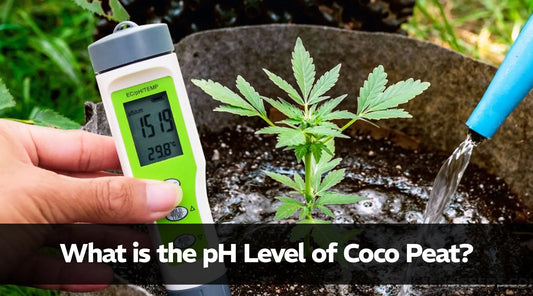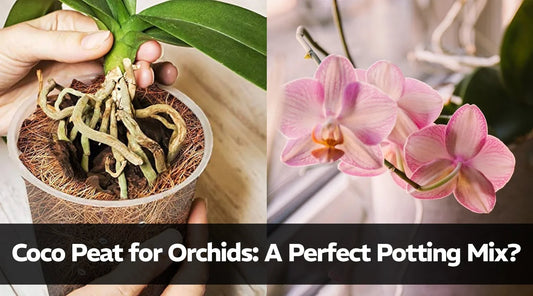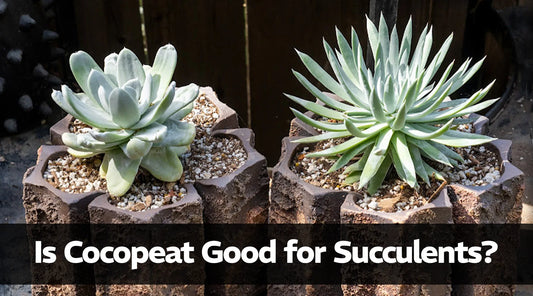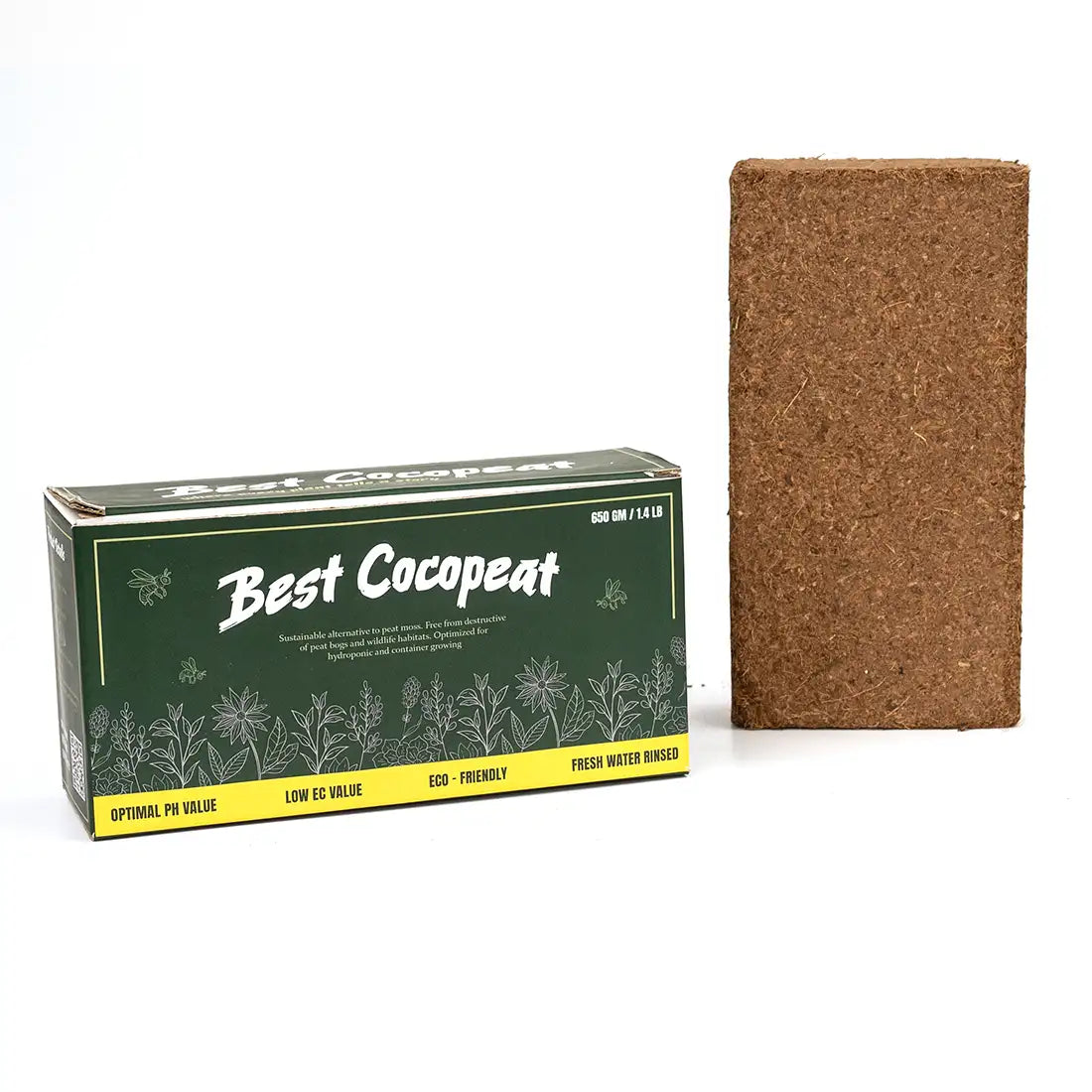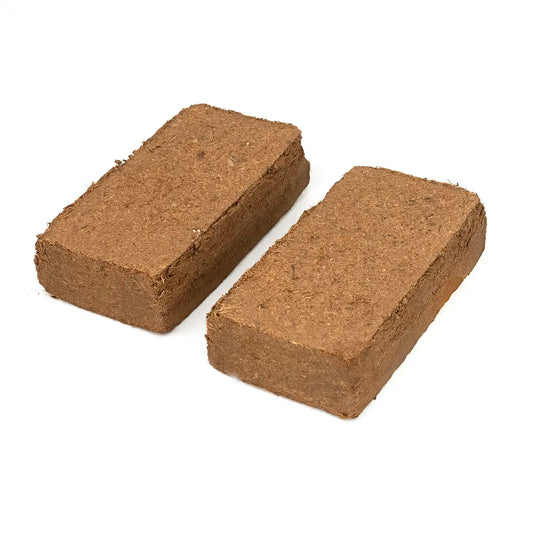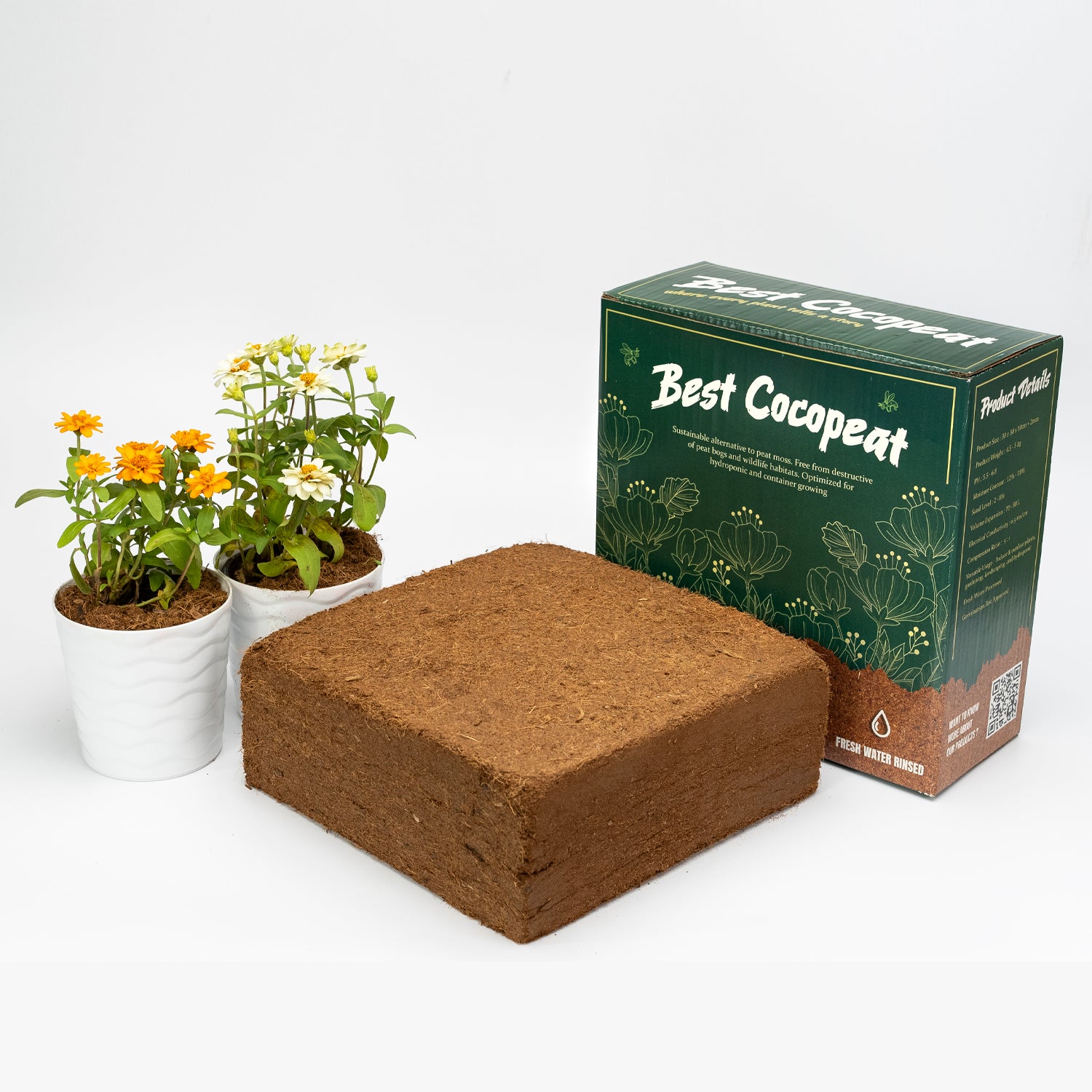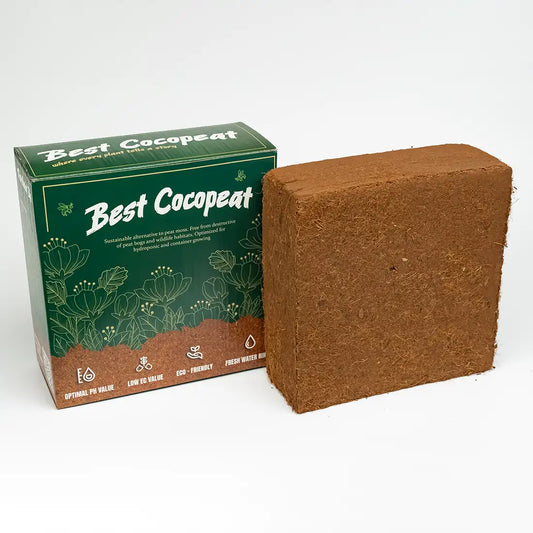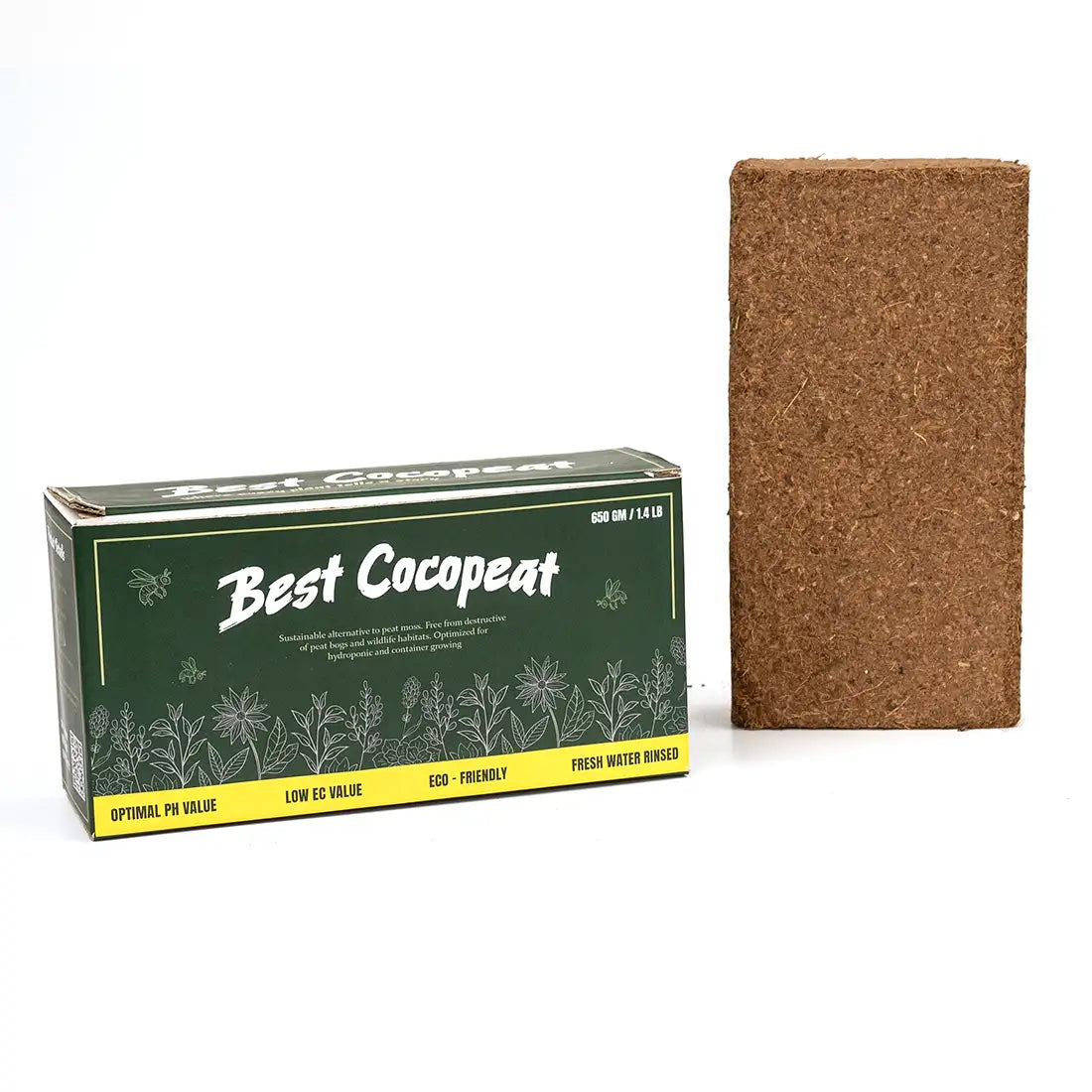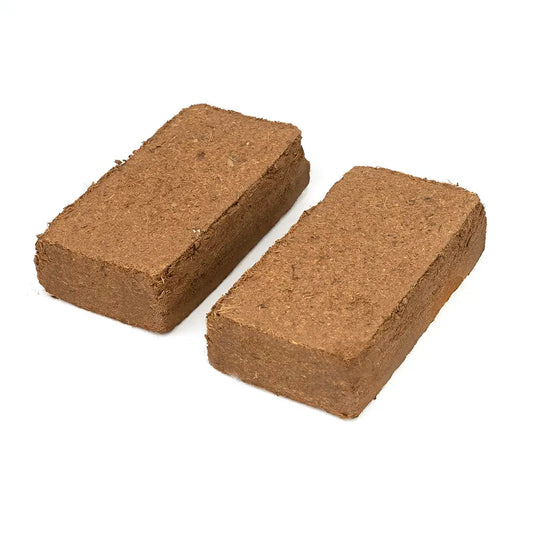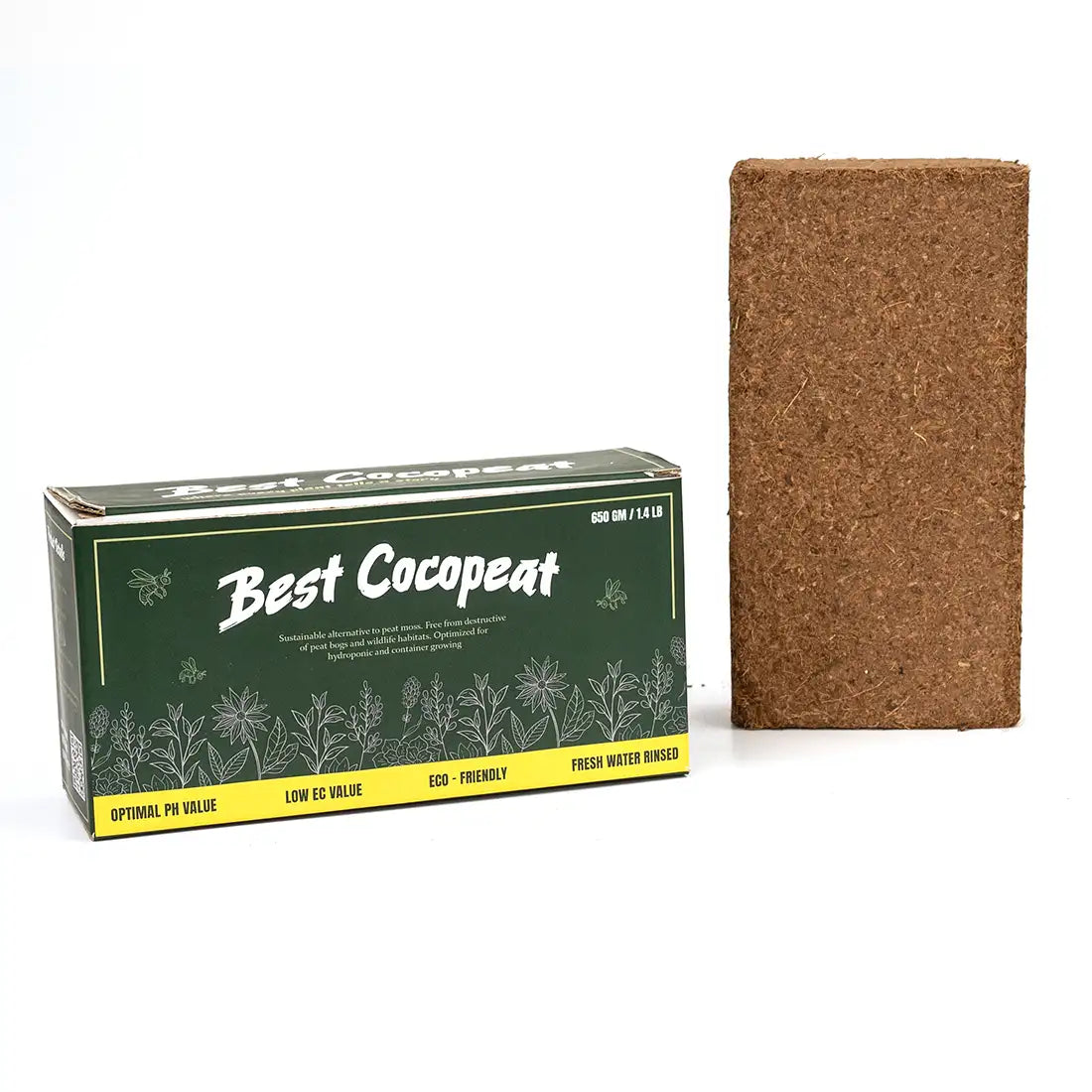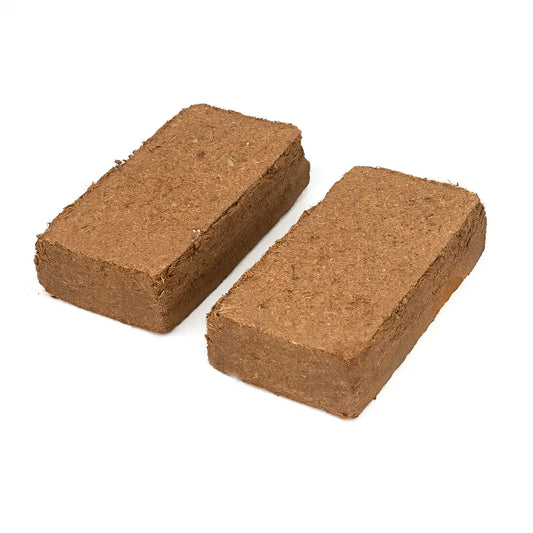Selecting the proper soil is crucial for cultivation of tomato plants in order to ensure strong development and sufficient fruit production. Cocopeat has turned into a popular choice for gardeners trying to grow a range of plants, including tomato plants. But is cocopeat good for tomato plants? Let’s research why this natural growing medium is gaining support among gardeners, especially when it comes to cultivating tomatoes.
What is Cocopeat?
Cocopeat, also known as coco coir peat, is a biodegradable growing medium made from the husks of coconuts.It's highly water absorbing, lightweight, and environmentally friendly making it an excellent alternative to regular soil. Cocopeat soil is rich in beneficial properties that make it perfect for container gardening, raised beds, and even hydroponics. It works very well for sensitive plants like tomatoes because of its ability to hold on water and enhance soil aeration.
The Advantages of Cocopeat for Tomato Plants
1. Proper Drainage and Retention of Water
Preserving the proper moisture balance is one of the most important elements of growing tomatoes. Although tomato plants need frequent watering, their roots also need to be able to breathe. Cocopeat excels in this area by absorbing water and holding moisture, keeping the soil from drying out too rapidly. Additionally, it permits superior drainage, avoiding excessive accumulation of water that may result in root rot, which is common in tomato cultivation.
Cocopeat assists in the creation of the right conditions for the development of robust roots in your tomato plant seedling by offering the ideal ratio of drainage to moisture retention. Healthy, well-oxygenated roots are crucial for getting enough nutrients, which in turn rapid tomato growth.
2. Better Aeration for Strong Roots
Well-aerated soil is ideal for tomato plants. Because of its flexible, flexible texture, cocopeat promotes healthy growth and keeps soil from being compressed by allowing air to freely circulate around the roots. In insufficiently air-conditioned soil, tomato roots may fail to grow and absorb nutrients properly. Using cocopeat will help your tomato plants get sufficient oxygen to improve their growth, which is important in the early stages of tomato farming.
3. pH Neutral for Healthy Development
The soil's pH has a significant impact on tomato plants' ability to absorb nutrients. Cocopeat is naturally pH-neutral (usually between 5.5 and 6.5), which is suitable for most vegetable plants, including tomatoes. In order to prevent acidic or alkaline conditions that might affect the absorption of nutrients and the general health of tomato plants, it helps maintain an even pH environment.
4. Sustainable and Eco-Friendly
Like many other plants, tomatoes gain from being grown in an environmentally friendly atmosphere. Unlike other common growing media that might be harmful to the environment, cocopeat is a renewable resource that decomposes naturally. You can support environmental efforts while cultivating healthy and fruitful tomato plants by using cocopeat. Additionally, it's an excellent replacement for peat moss, which is harvested in an unsustainable manner.
5. Resistance to Pests and Diseases
Cocopeat is entirely free of pests and diseases that frequently harm potting mixes made of soil. This natural resistance makes it perfect for beginning tomato plant seedlings or growing tomatoes in pots. It guarantees that your plants stay healthy throughout the growing season by decreasing the risk of root rot and other diseases caused by soil that might limit tomato growth.
How to Grow Tomatoes with Cocopeat
Step 1: Prepare Your Cocopeat
Soak the packed cocopeat brick in water prior to planting. It will quickly expand, giving you a light, airy medium that is ready to plant. Once the coco peat has soaked, blend it with additional organic resources, such compost or perlite, to provide your tomato plants a nutrient-rich environment.
Step 2: Plant the seedlings of your tomatoes.
Before placing tomato plant seedlings into your cocopeat mixture, ensure the roots are properly developed. Cocopeat gives the young plants an adequate foundation so that their roots can grow out and get the moisture and nutrients they demand.
Step 3: Maintain Optimal Conditions
For good development, tomatoes needed a lot of warmth and sunlight. For best growth, keep your plants in an acceptable temperature range of 65°F to 75°F (18°C to 24°C) and make sure they're getting lots of direct sunlight. Don't let the cocopeat soil get flooded; just enough moisture. Keep in mind that excessive watering can cause rot, therefore it's important to keep the roots hydrated.
Step 4: Periodic Fertilisation
Although being a great surface for tomato plants, cocopeat by itself isn't very rich in nutrients. Give your tomatoes the nutrition they want by fertilizing them using a water-soluble, balanced fertiliser for optimal results. This helps promote rapid development and guarantees that your plants generate a great number of delicious tomatoes.
Is Cocopeat the Best Soil for Tomato Plants?
Cocopeat stands up as the best soil for tomato plants. Its storage of water, oxygenation qualities, and ecological nature make it a great choice for growing tomatoes. The ideal ground for strong, fruitful tomato plants is cocopeat, whether you're beginning from seed or moving already-grown seedlings.
Final Thoughts
In conclusion, Cocopeat is an excellent selection for growing tomatoes in hydroponic systems, raised beds, or pots. It is a great growing medium for tomatoes due to its exceptional drainage and unique ability to retain moisture. When combined with its pH neutrality, pest resistance, and sustainability, cocopeat makes the ideal growing medium for tomato plants.
Use Best Cocopeat as your cultivation medium if you're serious about producing tomatoes and have the maximum chance of success. You'll be rewarded with colourful, tasty fruit from your tomato plants!

